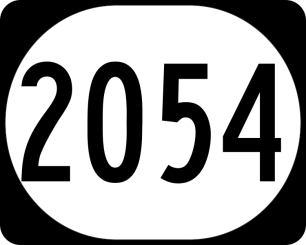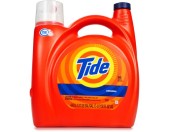
When I started my new job, I got a pension letter that read:
“Congratulations, you are eligible to retire in 2054.”
I looked that number.
“2054?” I’d have to wait 37 years to drop the mic and walk away from work? (More like amble, because I’d be old.)
I couldn’t get that number out of my head. 37 more years of waking up, commuting to work, hammering out reports and engaging in office politics. That’s when I decided:
“I want to retire from traditional work by 40.”
Why 40? Because it’s a nice round number and with some quick math, I totally think I can do it.
It’s something I’ve also begun to state quite openly amongst friends and family. Their responses range from “That’s amazing!” to chuckles, guffaws, and the “Yeah right…”
After all, the skeptics do have a cannon full of arguments that might hinder my ability to achieve this. I have no children or dependents yet, no mortgage to speak of, and I don’t sit in a six-figure job.
The only thing I have going for me is that I’m frugal and Justin Trudeau categorizes me as being in the upper-middle class, because statistically, the middle class Canadian individual living on a single income should sit between $23,357 and $36,859 annually, which I’m sure, many of you think is surprisingly low. (Yes, you’re right. If you’re making $40,000 annually as a single person in Toronto and living paycheck to paycheck, welcome to the upper-middle class. It’s messed up, right?)
But I’m not interested in arguing what the real Canadian middle class ought to be. In fact, I want us to completely ditch the notion of middle class, upper middle class, bourgeoisie, etc. and what those lifestyles look like, because really, your lifestyle should never be benchmarked against what society or social media tells you to live like. It should be benchmarked against your desire for comfort, what wealth means to you, and what makes you feel fulfilled.
For me? My view of wealth is the option to walk away from traditional work. Wealth is having the time to be a present father in whatever potential future offspring I care for. Wealth is pursuing the passions that so many of us have had to sacrifice in the name of keeping a roof over our head and food on the table. That’s what being wealthy means to me.
“But… I feel helpless. I’ll never get there. The odds are always stacked against the little guy.”
I’m going to talk about the common phrase: “The rich get rich, the poor get poorer.” You’ve heard it before, and probably muttered it under your breath reading about millionaires or after watching movies like The Big Short feeling enraged by how unfair the world is. And yep, it’s totally true. Just ask Warren Buffet, who continues to pay less tax than his secretary.
The tenet of the rich getting richer is that money makes more money. Plain and simple. The problem is we sometimes fritter it away on surprisingly unnecessary things that don’t actually make more money, like $5.00 Starbucks lattes every day, alcohol at restaurants, the latest Macbook which is actually really inconvenient for everyone, or this Nordstrom rock in a bag. This effectively slows down our ability to become “rich” because the amount of money we can set aside for the future to grow on its own is becoming diminished with every unnecessary expense.
So at a tactical level (removing emotional impacts like “fulfilment” from the equation for now), how do the rich actually get richer? And what keeps the poor person poor?
The tax system favours the rich.
Got $52,000 lying around? Many Canadians don’t, but that number is the total contribution limit to a Tax-Free Savings Account (TFSA) if you were 18 in 2004. Assuming an average 7% return on the market before inflation, a rich person can make $3640, if not more, tax free if they maxed it out on January 1st, 2017 and dumped it all in series of index funds. And that seriously compounds with added contribution limits each year (currently $5500 for the foreseeable future) and continued 7% returns. If we assume a constant $5500 contribution limit increase each year for 10 years (which we know is a lie, because the contribution limit is indexed to inflation in $500 increments) with maximum contributions and the 7% return rate, that rich person will have $172,782 by the end of the 10 years, free from the hands of the CRA.
Now, assuming this person is REALLY rich, they would also have maxed out the Retired Registered Savings Plan (RRSP), which is taxed upon withdrawal in lower income years, like retirement, and have tons of investments in non-registered accounts, which are exposed to outrageously favourable tax rates.
How favourable? Let’s say this rich person is comfortably sitting in a $100,000 job. In 2017 they would lose 43.41% of each additional dollar earned beyond $100,000 thanks to their marginal rate (i.e. applicable to interest, bonuses, side hustles, etc.). But any investment income would get taxed at 21.7% for capital gains (applicable to the difference between the assumed higher price you sold a stock for minus the original share price) and 25.38% for dividends (what companies pay you to say “thanks for holding our stock”).
That’s a difference of between 18-21% a rich person saves on taxes by letting their money make money, not including whatever is churning tax free or tax-deferred in their TFSA and RRSP. The rich person has money in all of these different types of accounts and works to optimize their tax situation.
(Want to see the difference between investment tax rates and your marginal rate? See my recommendations page that highlights free tax calculators.)
The consumer staples market favours the rich.
We’ve all done it. You stand in the aisle looking at two different kinds of containers for the same product. One is larger or bulk size and more expensive, the other is smaller but also has a lesser price. The richer person wouldn’t even bother looking and buy the bigger bulk package, the lesser fortunate individual might be in a bind and buy the smaller one, technically buying less for the dollar they spent. Worse? They’re going to have to haul back to the store sooner than the rich person, spending more time and money on gas/transit to do so, while also being exposed to more impulse buys for items they may not need.

The rich person also has an amazing credit card that he/she has no issue paying off, which gives cashback/points he/she can churn towards other purchases or travel. The less fortunate person is either paying cash or debit, because perhaps their credit card is already maxed out.
Consumer staples favour the rich. And the best part about this one is you don’t need to be making $100,000 to experience the benefits of buying well-priced life essentials and having a decent credit card to boot.
A rich person is truly free of debt.
Mortgages aside, a rich person will typically have paid off all outstanding debt, and I’m going to get real with you here: debt is crippling. Credit card interest is usually above the 18% rate. Remember the art of compounding for investments at 7% and what that looked like? Credit cards do that the opposite way, meaning you could spend years paying off a credit card with most of those payments just dealing with the outrageous compound interest. Same goes for student debt (5%+) and auto loans (4.5%+), just to a less crippling extent.
Okay, so I get it. The system is stacked against us. I will never be rich. Thanks.
Wrong. The journey to accumulate wealth to be able to access some of these “rich getting richer” tactics is not as daunting as it seems. In fact, with the right amount of effort, they are quite accessible to many of us. It’s as simple as spending less and investing the rest or paying down debt. In fact, recall that if you are making above $36,859 annually, you are the semi-privileged upper-middle class. I dare you take advantage of this incredible opportunity and wealth you have since many Canadians are far less fortunate.
And if you think if I’m crazy, I should mention there is significant literature out there that supports these claims. Over the coming months or years, I intend to share with you my story on building my own wealth in the name of financial freedom while also occasionally side ranting on consumer goods, big banks, and the skeptics that feel 65 is the proper age to retire. Enjoy the ride.
Recommended:
2 thoughts on “How do the rich actually get richer?”